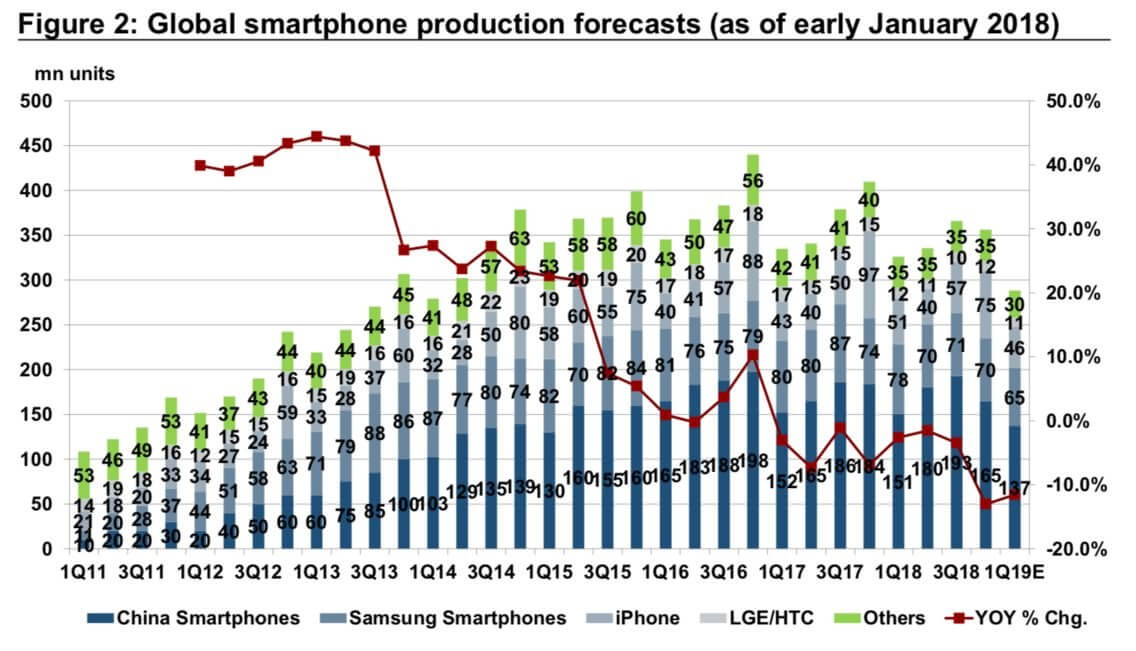In brief: The smartphone market isn't what it used to be. Even the industry's biggest players have issued warnings over their profit and sales declines, and Q4 2018 was a fairly grim time for most vendors. Now, analysts at investment bank Credit Suisse have said that handset production levels during the first three months of this year will drop to their lowest levels since 2013.
As reported by Business Insider, Credit Suisse wrote in a note to clients that global smartphone production is in free-fall, with the "bottom not yet in sight." For the final three months of 2018, it has revised production forecasts to 357 million units---a quarterly decline of 3 percent. It predicts output will fall to 289 million units in Q1 2019, a 19 percent QoQ drop.
Should Credit Suisse's prediction come to pass, this quarter will see the lowest smartphone production levels since 2013. It will also mean that first-quarter production will have fallen for five consecutive years. "It is too early to say whether this news is already fully discounted in share prices, or will continue to have an impact," the agency said.
We've already seen smartphone giants issue warnings over falling profits and sales. As we entered 2019, Tim Cook announced that "[Apple] revenue will be lower than our original guidance for the quarter."
Last week, market leader Samsung said the final quarter of 2018 had seen it miss analysts' expectations and brought its first quarterly profit decline in two years.
The smartphone market has been stagnant for a while, but things appear to be getting worse. Fewer people are buying the latest flagships, which have been offering only incremental improvements over their predecessors, while owners of feature phone aren't upgrading to full smartphones due to the lack of "ultra-low-cost" options.
Companies have promised that this year will bring big changes. Several handsets, including the Galaxy S10, are switching to hole punch designs instead of notches, which most Android users hate. We're also seeing more under-screen fingerprint scanners, multiple camera setups, and even folding phones. But it remains to be seen whether this will give the industry the boost it needs.

